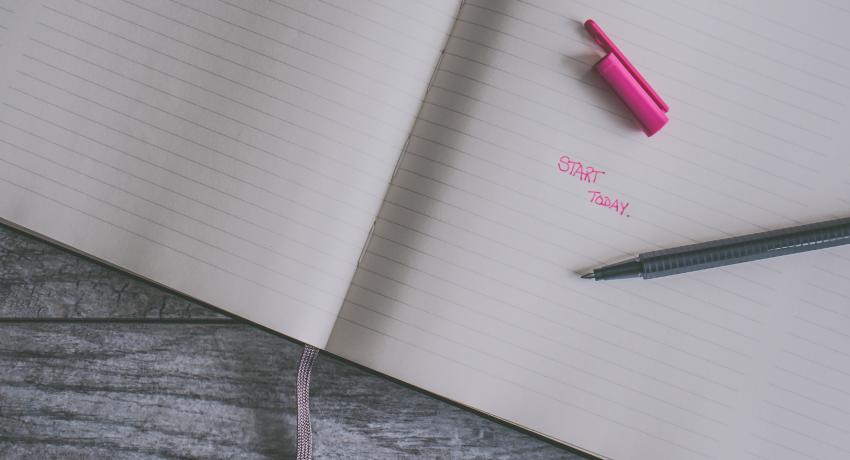What are coping skills?
- A coping skill is basically a way to relieve discomfort or stress. For example, if you are hungry the coping skill would be to eat. If you are tired, you sleep, and if you are cold, you put on a sweater. Coping skills are tools we use to self-calm, regulate our system, and create joy and fulfillment in our lives. People use coping skills everyday of their lives, they just may not recognize them.
- Coping skills can be either positive or negative. Positive coping skills enhance one's life, promote health, and reduce stress, anxiety and discomfort. Positive coping skills foster a pattern of sustainable behaviors and help to create fulfillment, positive self-esteem, creativity, and connection to others. Positive coping skills make us want to be present in our own lives.
- Examples of positive coping skills: journaling, mindful breathing, cooking, painting, exercising, going to therapy, becoming a member of a group, and spirituality.
- Negative coping skills tend to work in the opposite direction of positive coping skills. Negative coping skills are difficult to sustain and are often followed by negative consequences. Negative coping skills often lead to lower self-esteem, a sense of emptiness or loneliness, increased stress and anxiety, disconnection from others, and not wanting to be present in your own life.
- Examples of negative coping skills: excessive alcohol or drug use, overspending, shopping, gambling, fighting, breaking things, self injury behavior, overworking, and avoiding problems and/or emotions.
- For those struggling with substance use disorder, typically the main coping skills is routinely using a drug or alcohol. Over time, substance use becomes the priority over everything else. Drugs because their stress reliever, emotional or physical pain numb-er, best friend, and problem solver. The drug took over, and pushed everything else out of its place, slowly disconnecting the individual from activities they enjoyed, creative outlets, family, friends, spirituality, and their identity. The drug was no longer the drug, the drug was necessary for survival.
- When someone enters into recovery, they are basically rebuilding themselves from the bottom up. Trying to fill in the holes that alcohol or drugs created in their lives. Many have lost all sense of self and have no idea what they want or like. Their personality may be underdeveloped, and communication skills may have been lost. Learning coping skills helps people in recovery to rediscover who they are, develop a stronger sense of self, and reconnect socially and emotionally. Coping skills help to guide a person into becoming who they want to be.
- Long term recovery becomes achievable when positive recovery behaviors are continued over time, until eventually they evolve themselves into a sustainable recovery lifestyle. Identity, emotions, support, household management, use of free time and sustained use of healthy coping skills all have to be in alignment. Sustained recovery is all about creating a life that you want to be present for and actively engaged in.
TOP FIVE COPING SKILLS
- Play the Tape Through
- Playing the tape through is an exercise in looking forward to consequences that may happen if the individual decides to use again. For example, someone in recovery from heroin may play the tape through that says: “If I use heroin again, I will probably want to keep using, and I will spend all of my money on drugs, I will get sick again from withdrawal, I will lose my job, my family will kick me out, I might end up in jail, I could overdose and die.” The basic formula is “If I do A, then B will happen, followed by C, D, E, F, G...etc.” until you end on the worst possible identified consequence.
- Playing the tape through can be done in a few ways. You can pay the tape through focusing on only negative consequences, or individuals can focus on the positives they gain from staying substance free. For example: “If I don’t drink alcohol, I will be continuing X amount of days in recovery, I will not be hungover or sick, I will not get into a fight with my partner or parents, etc.”
- Planning Ahead/Tornado Drill
- Planning ahead and practicing positive coping skills before high risk and unexpected situations is extremely important to recovery. Planning ahead helps individuals know what to say and do if they are in a triggering situation. If new coping skills, verbal responses, and exiting strategies are thought out and practiced in advance, it helps to reduce anxiety, panic, and autopilot behaviors and relapse.
- Naming It
- Naming it is a mindfulness technique that helps individuals identifying thoughts, emotions, physical sensations, and behaviors. This is a helpful recovery tool because it increases awareness of relapse warning signs and justifications, and reduces the substance use disorder’s ability to hijack the brain. “Naming it” empowers the individual over their thoughts. For example, if a person is feeling “stressed” before a family event, they might name it as “anxiety or worry.” If a person starts to think about the good old days when they were using, they might name it “romanticizing or glamorizing.” If the individual starts to think about how they could use just a little bit and no one would know, they could this line of thought “plotting or relapse justification.” Sometimes just naming the thought, emotions, and behaviors is enough to stop cravings, motivations, and behaviors from escalating.
- What do I Really Need?
- Often when a person is faced with a trigger that elicits a craving, the first thought is to use their preferred substance. When that happens, the individual should ask themselves, “What do I really need?” The answer is never the substance, rather it could be: a hug, a cry, to talk to someone, a nap, a break, food, to leave the situation...etc. To ask oneself, “What do I really need,” helps to build self-awareness, coping skills and resilience.
- Laughter
- Laughing reduces stress, increases endorphins, improves physical and mental health, reduces pain, and helps people feel better.
Diversions/Distractions-help to redirect the mind and behaviors to alternative activities.
- Art
- Clean
- Journal
- Write
- Organize
- Draw
- Paint or color
- Photography
- Play an instrument
- Sing
- Dance
- Wood working
- Listen to music
- Take a shower/bath
- Play a computer game
- Garden
- Cook
- Take a walk
- Go for a long drive
- Watch TV
- Watch a movie
- Youtube videos
- Ted Talks
- Play a board or card game
- Go shopping
- Read
- Exercise
- Sew or knit
- Yardwork
Social/Interpersonal coping-communication and spending time with others and managing relationships
- Spend time with family
- Go to therapy
- Be assertive
- Spend time with friends
- Spend time with neighbors
- Do an activity with children
- Play with a pet
- Volunteer
- Talk to someone
- Listen to others
- Take a class
- Attend a support group
- Use humor
- Sports
Cognitive Coping-focus on thought processes and mental challenges. Activates the mind.
- Learn something new
- Plan your dream house or vacation
- Keep an inspirational quote with you
- Do math problems
- Write a list of goals
- Write a list of pros/cons for decisions
- Reward yourself when successful
- Write a list of strengths
- Challenge yourself
- Make a gratitude list
- Do a crossword puzzle
- Blog or post
Tension Releasers/Mindfulness- reduces tension in the body and feelings of stress, calms emotions and bodily sensations, become more present cognitively and emotionally, fully aware of surroundings, and without judgment.
- Exercise or play sports
- Meditate
- Massage
- Seek out comedy
- Aromatherapy
- Cry
- Sleep/nap
- Deep breathing
- Guided meditation/body scan
- Mindful walk
- Mindful eating
- Float in the water/Look up at the sky
Exercise or Play Sports- physical activity either alone or with a group helps to improve mood, reduces stress, improves physical health and appearance, helps to boost energy, and promotes social connections.
- Run/jog
- Walk
- Ride a bike
- Tennis
- Golf
- Crossfit
- Swim
- Jump rope
- Sleep/nap
- Baseball
- Basketball
- Football
- Weight lifting
- Yoga
- Tai chi
- Karate
Spiritual/Religious- belief in a higher power or a power greater than one’s self. A sense of connectedness to others, the environment, the world, and the universe. Focus on the “soul.”
- Read religious texts or books
- Pray or meditate
- Spend time in nature
- Do energy work (Reki)
- Get involved in a worthy cause/volunteer
Limit and Boundary Setting-a set of rules or guidelines you have for yourself and are part of your identity. It is being comfortable saying no to others and yourself, and also gives you permission to prioritize and let go of things that are not working for you. Setting limits and boundaries is important to mental health and wellbeing.
- Make yourself priority number one for health and recovery
- Set boundaries and say “no”
- Use “I” statements
- Communicate assertively
- Ask for what you need
- Name your limits
- Drop involvement in activities if over-scheduled or overwhelmed
- Prioritize important tasks
- Schedule time for yourself
Negative coping skills include-these are coping skills that take away rather than add to your life. These are coping skills to avoid and find alternative coping strategies for.
- Drugs/Excessive alcohol use
- Self injury behavior
- Ignoring or bottling up feelings
- Taking sedatives
- Aggression
- Taking stimulants
- Working too much
- Avoiding your problems
- Denial
SELF REFLECTION QUESTIONS
- Name two diversions or distractions you are currently using or have used in the past.
- Name three different diversions or distractions you would be willing to commit to trying at least once.
- Name one social or interpersonal coping skill you are currently using or have used in the past.
- Name two different social or interpersonal coping skills you would be willing to commit to trying at least once.
- Name one cognitive coping skill you are currently using or abusing the past.
- Name two different cognitive coping skills you would be willing to commit to trying at least once.
- Name one tension releaser or mindfulness coping skill you are currently using or used in the past.
- Name two different tension releasers and mindfulness coping skills you’d be willing to commit to trying at least once.
- If it applies, name one spiritual or religious coping skill you are currently using or used in the past.
- If it applies, name one different/new spiritual or religious coping tool you’ll be willing to commit to trying at least once.
- If physically able to exercise, name two exercises or sports you’re currently doing or have done in the past.
- Name two different exercises or sports you’d be willing to commit to trying at least once.
- Name one limit or boundary you have set.
- Name two different or new limits or boundaries you would be willing to commit to trying at least once.
- Name three negative coping skills you are currently using or have used in the past.
- Identify any five coping skills that you will commit to using as part of your relapse prevention and recovery plan.
- Write down how you plan to use one of your coping skills and incorporate it into your daily routine.
- Log in to post comments

